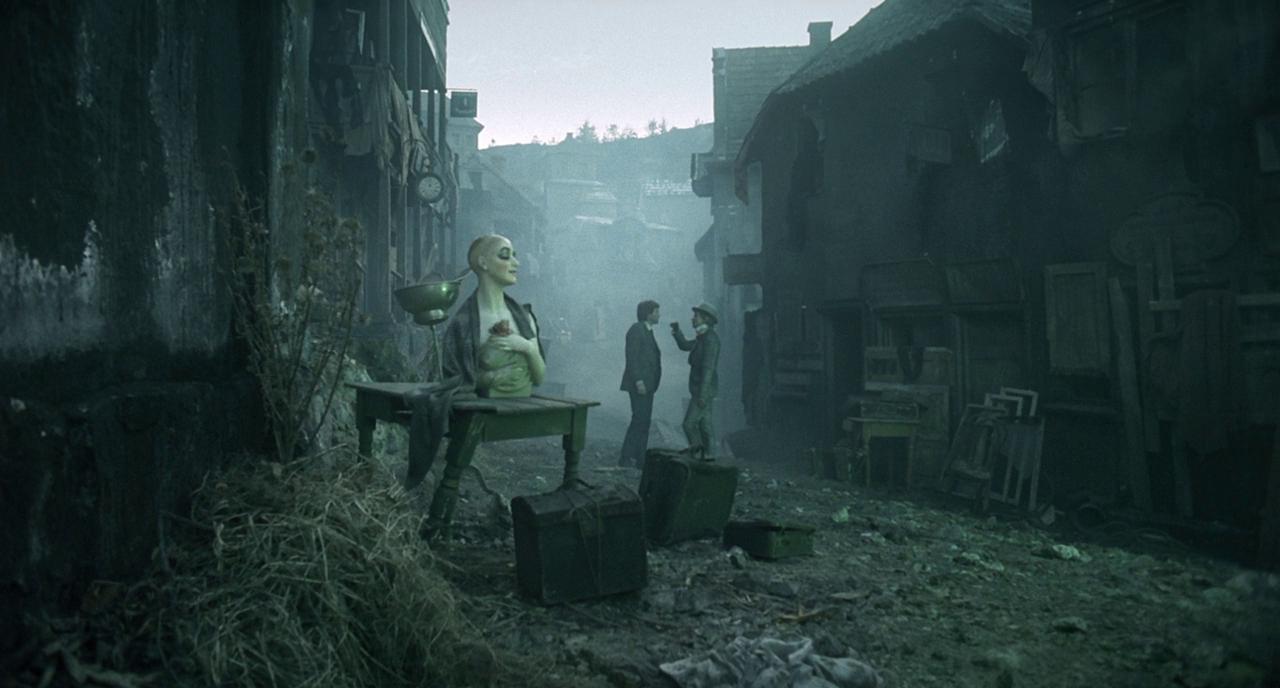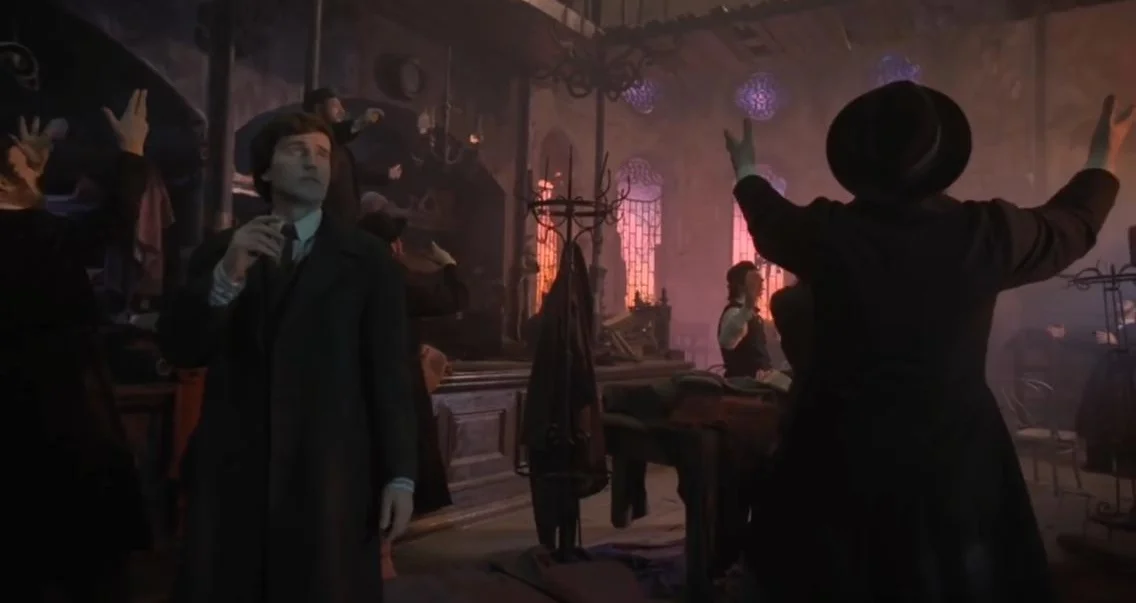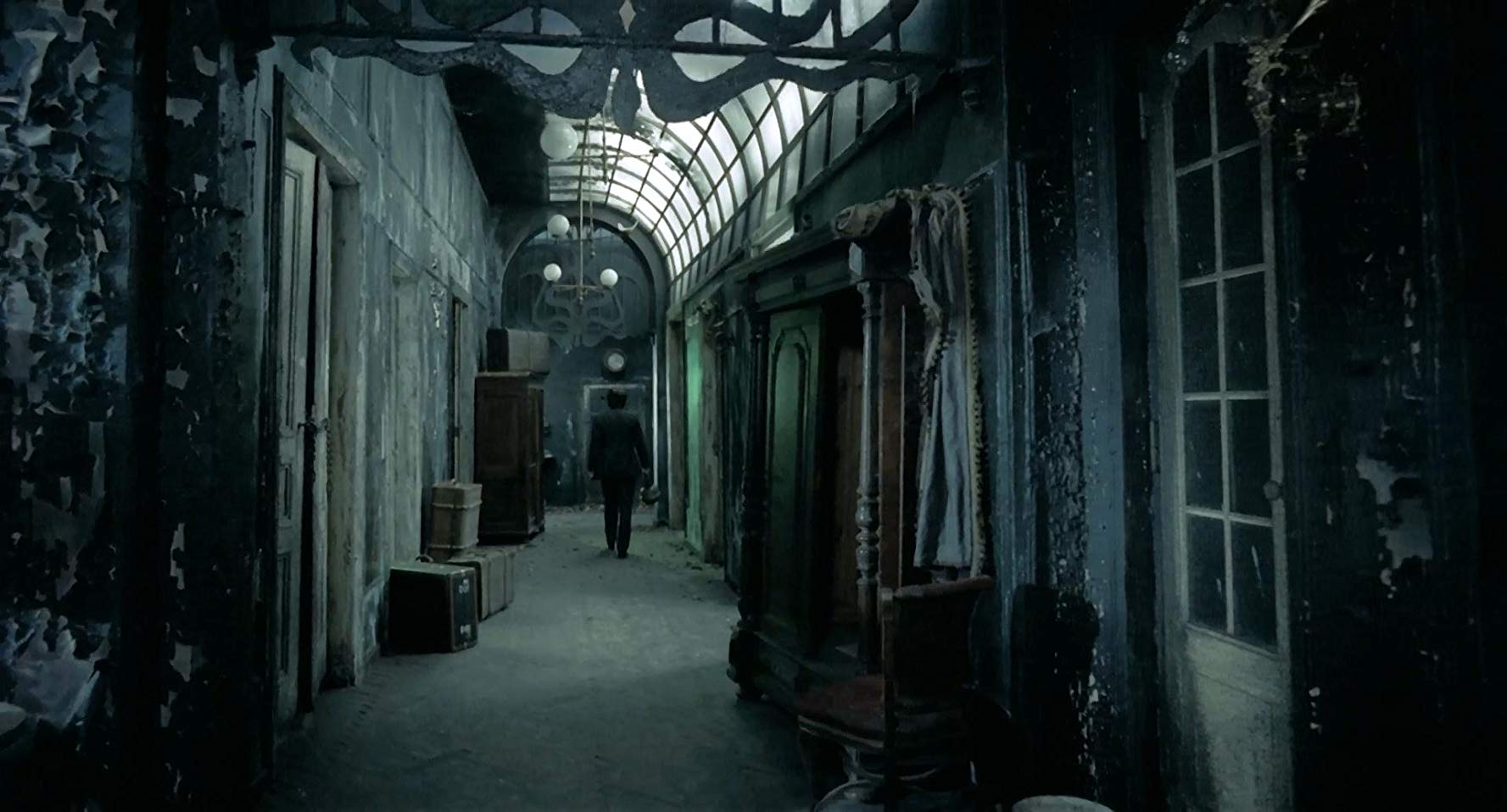Summary
A man named Jozef visits a sanatorium where his father is staying, only to find that within its walls, time doesn’t behave the way it should.
My Thoughts
I’ve watched this film twice within the year now, and the first time, I’ll admit, I was a little too overwhelmed to write a review for this movie. It left me both confused and completely enchanted, and I knew immediately that I wanted to watch the movie again, now knowing how the film would progress. Indeed, this is a movie that I feel like needs either two viewings or a bit of prior knowledge to fully appreciate. It’s absolutely one of a kind when it comes to production design, story structure, even atmosphere and acting. This movie is a rabbit hole down which the viewer falls, and the first time through, it’s difficult to take in everything, because there is so much going on. When I sat down to watch this for a second time (this time showing it to fellow TMM writer, Michael, and our buddy Chad) I knew what to look for, I knew the general storyline, and I felt myself not only enjoying the film as a story a lot more, but I also found myself appreciating the cinematic tricks and imagery more too. This is not an easy film to watch- it requires thinking, patience, and a lot of imagination, but if you’re a cinephile who likes movies in the same vein as Jodorowsky or have an interest in production design, this is a film you wont want to miss.
"How do I get out of here?" "Try going under the bed again."
The film starts on a train where all of the occupants are either asleep or nigh comatose. We meet our protagonist, Jozef (Jan Nowicki, “Before Twilight”) as he talks to a strange, blind conductor wearing a number of watches and clocks. When Jozef asks how he will get to his destination, a Sanatorium, the conductor responds that he won’t get lost, he’ll find his way. Jozef gets off the train and follows a path until he comes to a huge, decrepit house; he enters to find the wallpaper peeling, dry leaves scattered across the floors, veils of gossamer hanging from the ceiling, windows broken and vines climbing up the walls. The house is almost entirely empty, save a nurse who tells him to wait for the doctor. When Jozef finally does meet the doctor, the doctor informs him that his father both is and isn’t alive. He explains that time doesn’t work the same way that it does in other places; it bubbles up and flourishes into pseudo realities that have elements of real life, but are often exaggerated by how things were then perceived. Jozef then goes about the Sanatorium in search of his father, all the while, living through his old memories that are now overinflated and over exaggerated with all sorts of strange and unique images and characters.
If you look at this story as a whole, it’s essentially a biography of our protagonist’s life. We witness as he wanders through his memories in sequential order; starting as a child and following him through his years in the army, his years after the army as a business man and scholar, and even further into his years as a revolutionary writer. The film takes the biography a step further, however, by including ‘offshoots’ as one of the characters calls them. These ‘offshoot’ sequences are usually comprised of Jozef’s forgotten hopes and dreams, or plans that he had for the future that didn’t work out. There’s one scene near the beginning of the film, when Jozef wanders into a room filled with lifeless mannequins (and people standing still)- a butler explains that all these people are characters that once had had a great effect on Jozef’s life- there are people he read about in history- villains and heroes- as well as some imaginary depictions of what he imagined he might look like when he’d grown. It’s a sort of biography that tries not just to tell a story of a man’s life, but also to encapsulate everything that was a part of that man’s life, as well as the tone he felt in certain instances. The first memories Jozef wanders through take place in a largely Jewish Polish town before WW2, where Jozef seems to know everyone and everyone seems to know him. Jozef himself remains a middle-aged man, but he behaves and is treated like a young boy. As he wanders through the town, we’re shown wonderfully magical imagery, none of which could’ve possibly existed in real life. Eventually, some of the townsfolk encourage him to climb a ladder; he does, and we’re shown what is probably his first pseudo-sexual experience with a loose girl in the village. The film follows Jozef through one memory to the next, often stopping to show us something bizarre, but always giving us meaning behind the things we’re shown. When Jozef first meets his father, he’s surrounded by men who are listening to his father’s teachings (or ramblings depending on how you look at it). Jozef’s father warns against viewing everything with ‘blind literalism,’ and he seems to be speaking as much to his listeners as he is the viewer of this film. This movie, if taken literally, is impossible to understand, but if taken figuratively, metaphorically, and with a bit of imagination, it’s a film that encapsulates an entire life- from the smallest memories to the largest dreams.
Verdict
I found this movie while looking for grimmer fantasy films- and that is pretty much what this is. It feels like a gothic fantasy, with such grim settings, images and themes that it could almost be considered horror (I’ve seen it on a few horror lists too, which is why I’ve included it in our 31 Nights of Thrills series). This was my first Wojciech Has film, but it wont be my last. His films are relatively difficult to find (this one is available on Blu-Ray, as is “The Saragossa Manuscript”- but other than that, most of his films are out of print), but if you can find them, I absolutely recommend watching them. This film is difficult to appreciate fully the first time through, it requires work on the part of the viewer, but if you’re willing to fully engage with the film, it’s an experience that is difficult to forget.
This is part of our 31 Nights of Thrills Series. Not all of the movies we review for this series will be strictly horror, but all will have something to do with the spirit of things spooky or scary. If you like those types of movies, be sure to check back throughout the month of October!
Review Written By:







